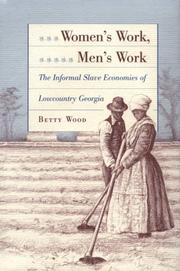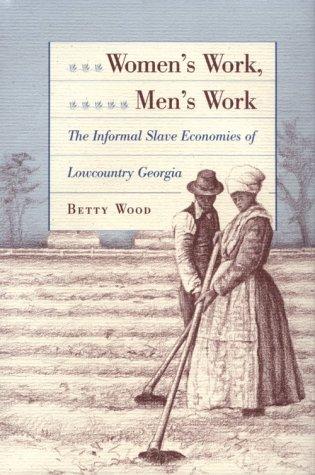Check nearby libraries
Buy this book

In Women's Work, Men's Work, Betty Wood examines the struggle of bondpeople to secure and retain for themselves recognized rights as producers and consumers in the context of the brutal, formal slave economy sanctified by law.
Wood examines this struggle in the Georgia lowcountry over a period of eighty years, from the 1750s to the 1830s, when, she argues, the evolution of the system of informal slave economies had reached the point that it would henceforth dominate Savannah's political agenda until the Civil War and emancipation.
In considering the quasi-autonomous economic activities of bondpeople, Wood outlines the equally significant but quite different, roles of bondwomen and bondmen in organizing these economies. She also analyzes the influence of evangelical Protestant Christianity on bondpeople, and the effects of the fusion of religious and economic morality on their circumstances.
For a combination of practical and religious reasons, Wood finds, informal slave economies, with their impact on whites, became the single most important issue in Savannah politics. She contends that, by the 1820s, bondpeople were instrumental in defining the political agenda of a divided city - a significant, if unintentional, achievement.
Check nearby libraries
Buy this book

| Edition | Availability |
|---|---|
|
1
Women's work, men's work: the informal slave economies of lowcountry Georgia
1995, University of Georgia Press
in English
0820316679 9780820316673
|
aaaa
|
Book Details
Edition Notes
Includes bibliographical references (p. 189-233) and index.
Classifications
The Physical Object
Edition Identifiers
Work Identifiers
Community Reviews (0)
| July 15, 2024 | Edited by MARC Bot | import existing book |
| August 18, 2020 | Edited by ImportBot | import existing book |
| February 28, 2020 | Edited by MARC Bot | remove fake subjects |
| July 14, 2017 | Edited by Mek | adding subject: Internet Archive Wishlist |
| December 8, 2009 | Created by ImportBot | add works page |









